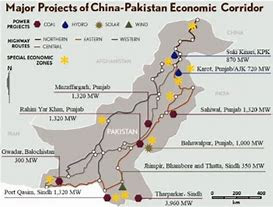We will explore what corporate agriculture farming is, which countries should adopt this policy and its potential consequences for Pakistan’s local farmers and economy.
Introduction
Corporate agriculture farming, often known as agribusiness or industrialized farming, is a system in which large corporations control and manage agricultural production on a massive scale. This model has been gaining momentum in various countries, including developed nations like America and Canada. However, its feasibility and impact on developing countries, especially in the case of Pakistan, have sparked debates and discussions.
What is Corporate Agriculture Farming?
Corporate agriculture farming involves large-scale farming operations run by corporations. These companies utilize advanced technologies, modern machinery, and efficient production methods to maximize agricultural output. They often focus on cash crops and export-oriented products, aiming to generate higher profits and meet the growing demands of international markets.
The Potential of Corporate Agriculture Farming
Corporate agriculture farming holds promise for countries that struggle with low agricultural productivity due to various factors such as limited arable land, adverse climatic conditions, and inadequate resources. By harnessing advanced technologies, modern farming practices, and substantial financial resources, large corporations can revitalize agriculture in these regions.
For nations with low agricultural production and infertile lands, corporate farming offers a potential solution to boost productivity, improve food security, and drive economic growth.
Advantages of Corporate Agriculture for Low-Production Countries
Corporate agriculture can offer several advantages for low-production countries seeking to boost their agricultural output and improve food security. By adopting large-scale farming practices and leveraging the benefits of modern technology and expertise, these nations can overcome challenges and achieve significant progress in their agricultural sector. Here are some of the key advantages of corporate agriculture for low-production countries:
1. Technology and Expertise
Large corporations have access to cutting-edge technologies, including precision farming, data analytics, and genetically modified crops. They also possess the expertise to optimize agricultural practices, leading to higher yields and improved efficiency.
2. Investment and Infrastructure
Corporate agriculture often brings significant investment to rural areas, leading to the development of essential infrastructure, such as irrigation systems, storage facilities, and transportation networks. This infrastructure upgrade can transform the agricultural landscape and benefit local communities.
3. Crop Diversification
Corporate farming entities may introduce crop diversification, exploring different types of crops suitable for the specific climate and soil conditions. This diversification can reduce the dependency on a limited range of crops and enhance resilience against external shocks.
4. Increased Employment Opportunities
Expanding corporate agriculture can create job opportunities in both farming and ancillary industries. It will require a skilled workforce to operate and maintain complex machinery and technology. The inflow of employment can address rural unemployment issues and boost local economies.
5. Access to Global Markets
Corporate agriculture facilitates market access for the produced goods on a larger scale. This can open up opportunities for exporting agricultural products to international markets, increasing foreign exchange earnings and promoting economic growth.
6. Economies of Scale
Large-scale farming operations benefit from economies of scale, leading to reduced production costs. Bulk purchasing, centralized distribution, and streamlined logistics contribute to cost-effectiveness, making agricultural commodities more affordable for consumers.
7. Enhanced Efficiency and Productivity
One of the significant advantages of corporate agriculture farming is its ability to achieve higher levels of efficiency and productivity compared to traditional farming methods. The utilization of advanced machinery, precision farming techniques, and optimized resource management allows for greater output per unit of land, resulting in higher yields.
Disadvantages of Corporate Farming
While corporate agriculture farming offers several advantages, it also comes with certain disadvantages that need to be carefully considered. As large-scale farming operations managed by corporations, these farms may face criticisms and challenges that can have significant social, economic, and environmental implications. Here are some of the key disadvantages of corporate agriculture farming:
1. Displacement of Local Farmers
Corporate agriculture can lead to the displacement of small-scale farmers who may struggle to compete with large corporations. This could result in a concentration of land ownership and marginalization of local communities.
2. Environmental Concerns
While corporate agriculture offers several advantages, it is essential to address potential environmental concerns. Large-scale farming may lead to increased use of fertilizers, pesticides, and water resources, potentially causing environmental degradation and ecological imbalances. Therefore, sustainable and eco-friendly practices should be promoted to ensure long-term environmental conservation.
3. Food Insecurity
Corporate agriculture’s focus on cash crops for export markets may lead to neglect of essential food crops for domestic consumption, potentially causing food insecurity.
4. Social Inequality
The unequal distribution of wealth and power in corporate farming can exacerbate social disparities, with small farmers and rural communities losing out.
5. Risk of Monoculture
Corporate farms often focus on cultivating a single crop or a few select crops. This monoculture approach increases the risk of widespread crop failure due to diseases or pests targeting those specific plants.
Which Countries Should Adopt This Policy?
Countries with vast agricultural potential, abundant land, and favourable government policies are more likely to adopt corporate agriculture farming. Nations like America, Canada, England, and India have integrated this system to some extent. Their decision to embrace corporate farming is often influenced by factors such as food security, economic growth, and international trade.
Corporate Agriculture Farming in Pakistan
Pakistan, a developing country with a substantial population and an agricultural backbone, stands at a crossroads regarding the adoption of corporate agriculture farming. The country faces challenges of food security, increasing demand for agricultural products, and the need for modernization in the agricultural sector.
Impact on Pakistan’s Economy
The implementation of corporate agriculture farming in Pakistan can have significant repercussions on the nation’s economy. On the one hand, it may lead to increased agricultural productivity and greater participation in international markets. However, it can also result in the displacement of small farmers, potential food insecurity, and social inequality.
How Corporate Farming May Cause Inflation for Basic Food Items
One major concern with corporate agriculture is the possibility of inflation for basic food items. When local farmers stop producing, Pakistan would have to import essential food items from abroad, leading to increased costs and reduced self-sufficiency. This dependence on imports can cause inflation and affect the standard of living for the common people.
Green Economies: Exploring the Post-Pandemic Growth Potential – Pakistan Desk Net
Conclusion
In conclusion, corporate agriculture farming has both advantages and disadvantages that must be carefully evaluated when considering its implementation in any country, especially in low-production nations like Pakistan. The benefits of increased productivity, access to technology, infrastructure development, and job creation are appealing but the potential drawbacks of environmental concerns, loss of traditional practices, and social inequalities cannot be ignored.
For low-production countries, corporate agriculture can present an opportunity to modernize the agricultural sector and address food security challenges. However, it is essential to manage a balance between large-scale farming and sustainable practices that respect local traditions and protect the environment.
Countries considering adopting corporate agriculture should create policies that prioritize the welfare of small farmers, promote sustainable practices, and encourage technology transfer and knowledge sharing. By doing so, they can enjoy the advantages of corporate agriculture while minimizing its potential disadvantages.
Overall, the future of corporate agriculture in low-production countries depends on responsible decision-making, collaboration between stakeholders, and a commitment to achieving food security and sustainable agricultural development.
FAQs
Q1. Will corporate agriculture farming completely replace traditional farming in Pakistan?
There are concerns regarding this issue. But probably no. Corporate agriculture is likely to coexist with traditional farming practices in Pakistan. However, its expansion may impact the livelihoods of small farmers.
Q2. Can corporate farming lead to food scarcity in the domestic market?
There is a possibility that the focus on export-oriented crops might neglect essential food crops, leading to potential food scarcity in the domestic market.
Q3. What steps can the government take to protect the interests of small farmers?
The government can implement policies that ensure fair competition and support for small farmers, offering incentives for sustainable farming practices.
Q4. How can corporate agriculture farming positively impact Pakistan’s economy?
Corporate farming can contribute to increased agricultural productivity, generating more revenue from exports and reducing trade deficits.
Q5. Is corporate agriculture farming sustainable in the long run?
The sustainability of corporate agriculture depends on responsible practices, environmental consciousness, and equitable distribution of benefits among stakeholders.
Q6. Can corporate agriculture be successful in countries with limited arable land?
Yes, corporate agriculture’s advanced technologies and expertise can optimize agricultural productivity even in regions with limited arable land.
Q7. Is corporate agriculture suitable for all types of crops?
Corporate agriculture can be applied to various crops, but the selection should consider factors like climate, soil suitability, and market demand.
Q8. How can countries ensure environmental protection in corporate agriculture?
Governments can implement regulations and incentives to promote sustainable farming practices, minimizing environmental impacts.
Q9. Is corporate agriculture suitable for all low-production countries?
Corporate agriculture can be beneficial for some low-production countries, but its feasibility depends on various factors, including local conditions, infrastructure, and the social and economic context.
10. What measures can be taken to address environmental concerns in corporate agriculture? Implementing sustainable practices such as organic farming, crop rotation, and integrated pest management can help reduce the environmental impact of corporate agriculture.











2 Comments